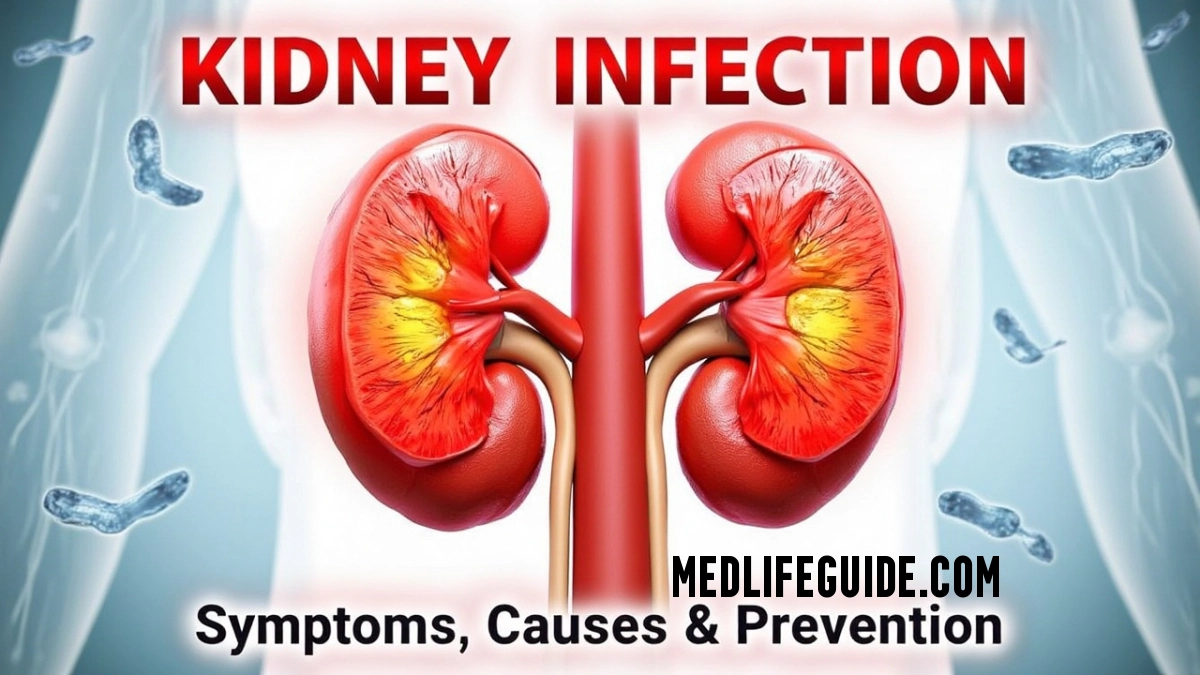Understanding Kidney Infections
A kidney infection (acute pyelonephritis) is a painful and potentially dangerous condition where harmful bacteria invade one or both kidneys. More severe than a bladder infection, it requires prompt treatment to prevent lasting kidney damage or life-threatening sepsis.
How Kidney Infections Develop
Most kidney infections start when bacteria (usually E. coli) travel from the bladder up the ureters into the kidneys. Less commonly, infections spread through the bloodstream.
Key Causes:
- Untreated UTIs – Bacteria multiply and ascend to the kidneys.
- Urinary blockages – Kidney stones or enlarged prostate trap bacteria.
- Weakened immunity – Diabetes or HIV increase vulnerability.
Who’s at Risk?
- Women – Shorter urethras make infections more likely.
- Pregnant women – Hormonal changes slow urine flow.
- Elderly individuals – Weaker immune systems raise risks.
- Catheter users – Direct pathway for bacteria.
Recognizing the Symptoms
Early Warning Signs:
- High fever (often above 101°F)
- Intense flank pain (side or lower back)
- Nausea/vomiting
- Fatigue & chills
Urinary Symptoms:
- Burning during urination
- Frequent, urgent peeing
- Cloudy or bloody urine
Emergency Symptoms (Seek Help Now!):
- Confusion (sign of sepsis)
- Severe dehydration
- Low blood pressure
Diagnosis: How Doctors Confirm a Kidney Infection
1. Urine Tests
- Dipstick test – Detects white blood cells & nitrites.
- Culture – Identifies the exact bacteria.
2. Blood Tests
- High WBC count signals infection.
- CRP/procalcitonin measure inflammation.
3. Imaging (if needed)
- Ultrasound – Checks for abscesses or stones.
- CT scan – Detailed kidney images.
Treatment: Beating the Infection
1. Antibiotics (Essential!)
- Mild cases: Oral ciprofloxacin or amoxicillin-clavulanate (7–14 days).
- Severe cases: IV ceftriaxone in the hospital.
2. Supportive Care
- Hydration – Flushes out bacteria.
- Pain relief – Acetaminophen for fever/aches.
3. Hospitalization Needed If:
- Vomiting prevents taking pills.
- High fever or sepsis develops.
Complications (If Left Untreated)
- Kidney scarring → Chronic kidney disease.
- Blood poisoning (sepsis) – Potentially fatal.
- Abscess formation – May require drainage.
Prevention Tips
- Drink 8+ glasses of water daily.
- Treat UTIs early before they spread.
- Avoid holding urine for long periods.
Key Takeaways
- Kidney infections are serious but treatable.
- Antibiotics are crucial – don’t delay care.
- Severe pain + fever = ER visit.
- Prevention reduces recurrence risks.
For more informations about kidney health and preventions please visit Medlifeguide 👈click here

